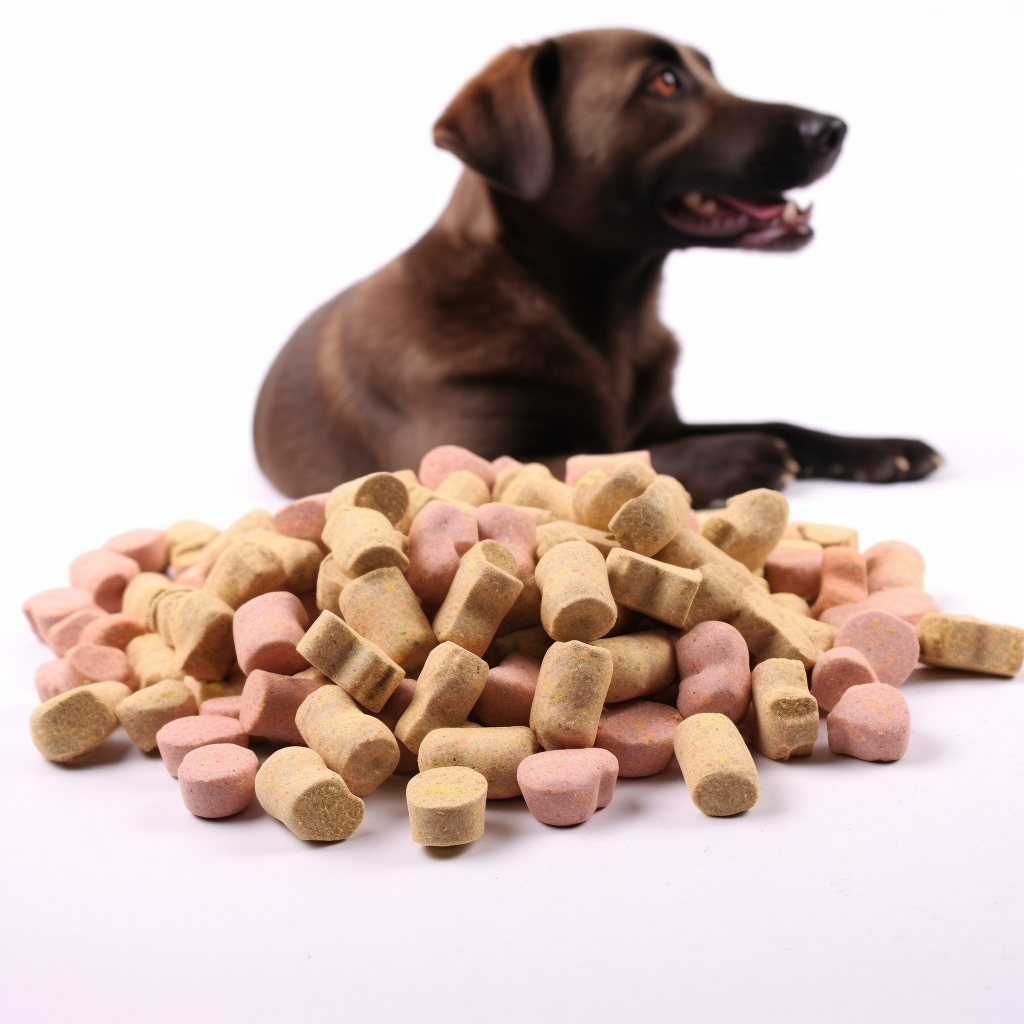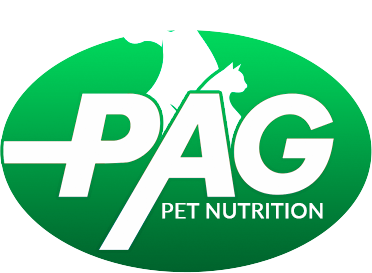
09 Jun Probiotics for Dogs How to Know if Your Dog Needs a Probiotic.
Do you ever wonder if your dog needs a probiotic? It’s not always easy to tell, but there are some signs that your dog might benefit from taking a probiotic supplement. In this blog post, we will discuss the signs that your dog might need a probiotic and how to choose the right one for your pet. We’ll also cover some of the benefits of probiotics for dogs and how they can help improve your dog’s health!
Generally, the dogs need to take probiotics because of several reasons , like
①When a dog first arrives in a new home
②they may experience stress that can lead to vomiting and diarrhea
③After deworming
④After a dog is vaccinated or elderly dogs
⑤Excessive gas or bloating
⑥Antibiotic use or other medication-related issues

Growing interest in probiotics for dogs:
Probiotics, once primarily associated with human health, have gained significant attention and popularity in the realm of pet care, specifically for dogs. Pet owners and veterinarians have become increasingly interested in harnessing the potential benefits of probiotics to support their dogs’ overall health and well-being. This growing interest is fueled by scientific research highlighting the role of gut health in various aspects of canine health, including digestion, immune function, and even behavior.
While probiotics offer potential benefits, it is crucial for dog owners to understand whether their furry companions actually require them. Not every dog will need probiotics, and it’s important to recognize that each dog’s digestive system is unique. Using probiotics unnecessarily or without proper guidance may not provide any significant advantages and could even be counterproductive. Therefore, determining if a dog needs probiotics involves considering specific factors, such as the dog’s health, symptoms, and lifestyle, to make an informed decision about incorporating probiotics into their routine. This understanding ensures that probiotics are used appropriately and effectively to address any specific digestive health or concerns or maintain overall gut health in dogs.
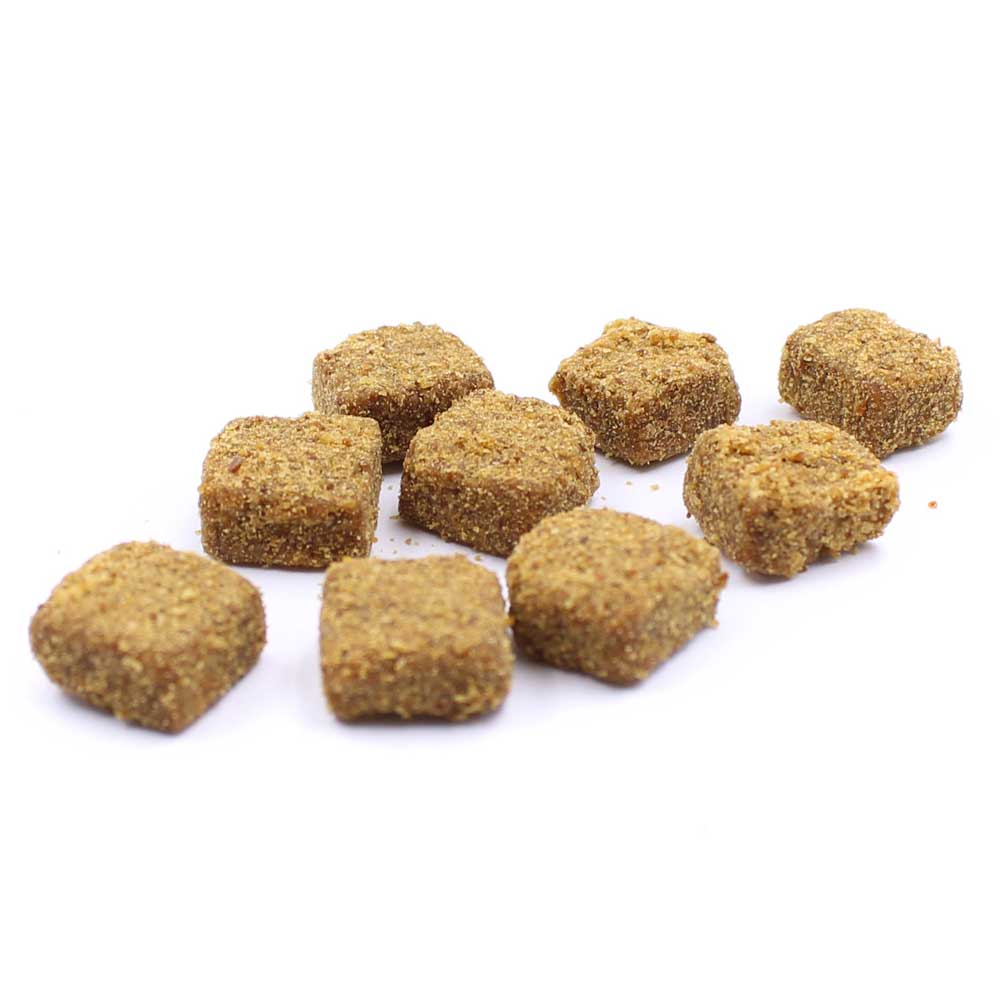
Definition and types of probiotics:
Probiotics are live microorganisms that, when administered in adequate amounts, confer health benefits to the host. These beneficial bacteria or yeasts can be found naturally in the gastrointestinal or digestive tract, and are also available in supplemental forms. Common types of probiotics used for dogs include Lactobacillus, Bifidobacterium, and Saccharomyces species. Each strain of probiotic may offer different potential benefits, so it is important to select the appropriate type based on the specific needs of the dog.
The digestive system of dogs is home to a complex ecosystem of microorganisms, including both beneficial microbes and harmful bacteria. Probiotics work by restoring or maintaining a healthy balance of these microorganisms. When administered, probiotics colonize the gut and compete with harmful bacteria for resources and space, helping to inhibit their growth. They can also produce beneficial compounds, such as short-chain fatty acids, that support the health of the intestinal cells.
Additionally, probiotics can enhance the function of the immune system within the gut. They stimulate the production of antibodies, strengthen the intestinal barrier, and modulate the inflammatory response. This immune modulation can be especially beneficial for dogs with digestive disorders or weakened immune systems.
Furthermore, probiotics can aid in the breakdown and absorption of nutrients. They can produce enzymes that assist in the digestion of complex carbohydrates, proteins, and fats, improving nutrient utilization by the dog’s body.
Overall, probiotics contribute to a healthier digestive system by promoting a balanced microbiota, strengthening the immune response, and improving nutrient digestion and absorption.
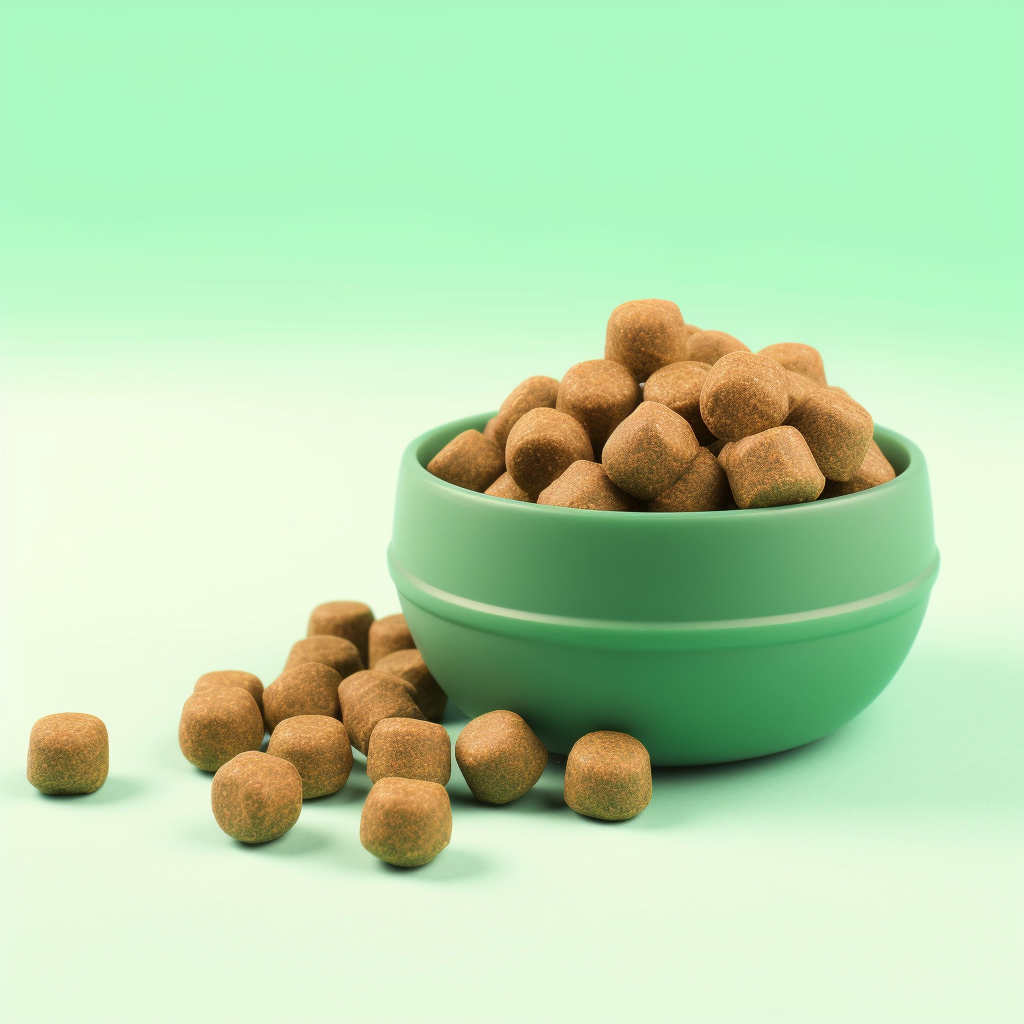
What Cases the dog will need to take probiotic supplements ?
(1) When a dog first arrives in a new home, they may experience stress that can lead to vomiting and diarrhea.
In these circumstances, it’s best not to immediately start feeding them solid food. Instead, you can give them some probiotics to help ease their digestive system into the new environment. Probiotics contain live microorganisms that can help restore the natural balance of bacteria in the dog’s gut, which can reduce or eliminate symptoms like vomiting and diarrhea. They are safe for most dogs and are available in powder, liquid, or pill form. When giving your dog probiotics for the first time, start with a small dose and increase gradually as needed. If you notice any adverse reactions, such as vomiting or diarrhea, stop giving probiotics and consult your veterinarian.
(2) After deworming
probiotics are live microorganisms that are found in yogurt and other fermented foods. They are also available in supplement form. Probiotics provide many health benefits, including boosting the immune system, reducing inflammation, and aiding in digestion. They can also help to prevent diarrhea and vomiting after deworming. Dogs who are fed probiotics after deworming have less irritation to the stomach and fewer episodes of diarrhea and vomiting. If your dog is experiencing any of these symptoms after deworming, probiotics may help to ease their discomfort. Talk to your veterinarian about whether probiotics are right for your dog.

(3)After a dog is vaccinated
After a dog is vaccinated, the probiotics in his body will be reduced and he may vomit and have diarrhea. probiotic supplements can help to reduce these side effects and give the dog’s immune system a boost. probiotics are available in many different forms, including powders, capsules, and liquids. When choosing a probiotic supplement for your dog, it is important to select one that contains live and active cultures. You should also look for a probiotic that has been specifically formulated for dogs. Giving your dog a probiotic supplement is an easy way to help keep him healthy and happy.
(4) Elderly Dogs
Just like humans, as dogs age their gastrointestinal function deteriorates. The production of enzymes slows down, and the cells lining the intestine become less effective at repairing themselves. This can lead to a number of problems, including nutrient malabsorption, diarrhea, and constipation. One way to help improve your dog’s gastrointestinal health is to supplement with pet probiotics. Probiotics are live microorganisms that help to support a healthy gut flora. They can be found in fermented foods like yogurt and sauerkraut, or they can be purchased in supplement form. By giving your dog probiotics on a regular basis, you can help to improve their gastrointestinal function and keep them healthy as they age.

(5) Excessive gas or bloating
If your dog frequently experiences excessive gas or bloating, probiotics may be helpful for them. Excessive gas refers to the production of a large amount of gas, while bloating refers to a swollen or uncomfortable feeling in the abdomen. These issues are often associated with poor digestion or the accumulation of gas in the digestive system. Probiotics can help regulate gas production and expulsion in the intestines, alleviating gas and bloating symptoms.
(6) Antibiotic use or other medication-related issues
If your dog is undergoing antibiotic treatment or taking other medications, probiotics may help alleviate medication-related digestive issues. The use of antibiotics can disrupt the beneficial gut bacteria, leading to digestive problems such as indigestion and diarrhea. Supplementing with probiotics can help restore good bacteria and maintain a balanced gut microbiota, reducing medication-induced digestive problems.
What Benefits do dogs take probiotic supplement?
As any pet owner knows, probiotics are an important part of maintaining a healthy digestive and healthy immune system too.
(1)Probiotics help to regulate peristalsis, promote digestion and absorption, and solve the problem of constipation.
(2)They can also be effective in relieving vomiting.
(3)In addition, probiotics can help to improve immunity and resistance, especially in puppies who are more prone to disease.
(4)And finally, probiotics can also prevent bad breath, tartar and plaque build-up in the mouth by defending against the invasion of viruses and other harmful microorganisms.
So if the dog is suffering from any of these problems, consider supplementing their diet with probiotics.
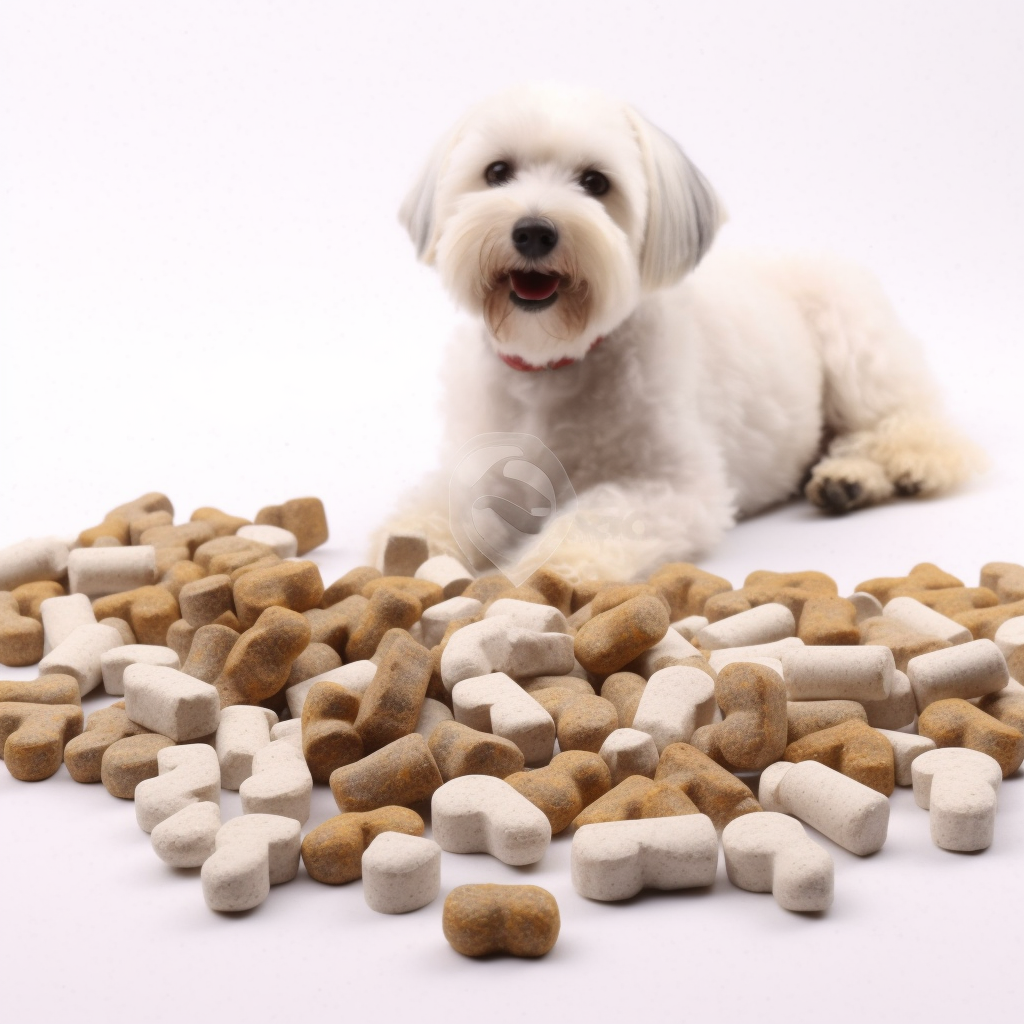
How To Feed Dog Probiotics?
When given in adequate amounts, probiotics can help maintain a healthy gastrointestinal tract and improve overall health. There are many different probiotic strains available, and each strain has its own unique benefits. When choosing a probiotic supplement for your pet, it is important to select one that contains high-quality, clinically-proven strains.
Probiotics are safe for most healthy dogs and can be fed 2-3 times per week. Some probiotics are available in powder form and can be mixed with wet or dry food. Others come in capsules or tablets that can be given directly to the dog or dissolved in water.
It is important to give probiotics within 15 minutes of opening the container, as exposure to oxygen will kill the live bacteria. Probiotics are a natural and safe way to support gastrointestinal health in dogs.
Choosing a high-quality probiotic supplement containing clinically-proven strains is the best way to ensure optimal health benefits for your pet.
